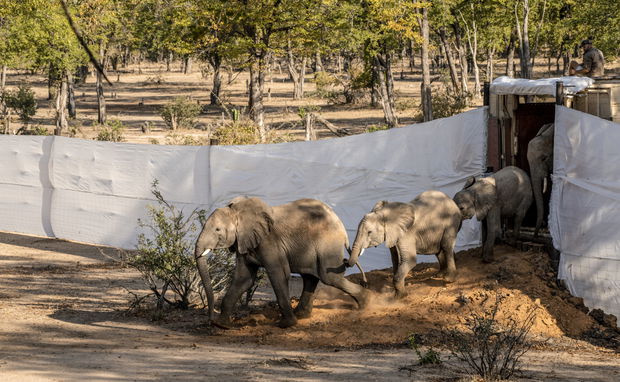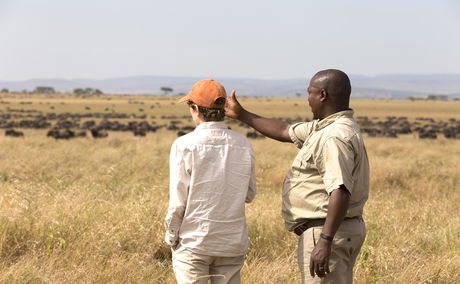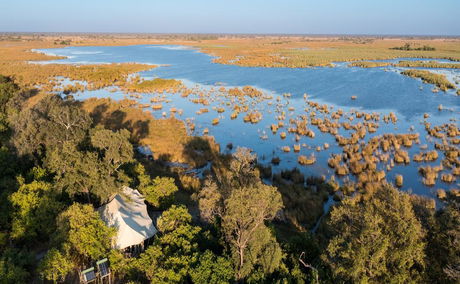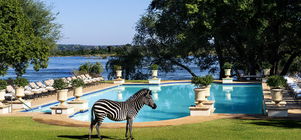Luxury travel is evolving beyond indulgence. For decades, luxury travel was defined by five-star accommodations, fine dining, and lavish spa treatments. However, today’s affluent travelers are seeking something far deeper than material indulgence. A new era of transformational luxury travel has emerged, where high-net-worth individuals prioritize personal growth, sustainability, and authentic experiences over traditional opulence.
Regenerative Safaris: Where Luxury Helps Heal the Land

What if your safari didn’t just tread lightly—but actually gave back to the land and people that made it possible?
That’s the promise of a new kind of safari: one that goes beyond sustainability and into something even more powerful—regeneration.
Regenerative safaris aren’t just about luxury. They’re about restoring ecosystems, rewilding endangered species, and partnering with local communities to ensure tourism leaves a lasting, positive impact.
Travel That Gives Back
Here’s the beauty of a regenerative safari: it doesn’t change the way your safari feels—it enhances what it means. You’ll still enjoy the same breathtaking landscapes, luxury accommodations, and unforgettable wildlife encounters. What changes is what’s happening behind the scenes.
You might never meet the conservation team that’s protecting endangered species. You may not visit the school that’s funded in part by your stay. But you can know, with quiet confidence, that your visit made those things possible.
For years, many safari operators have championed sustainability—reducing their footprint, conserving wildlife, and supporting nearby villages. But regenerative travel takes things a step further. Instead of just minimizing harm, it asks: How can we leave this place better than we found it?
Imagine staying at a lodge that runs entirely on solar power, sources its food locally, and uses your visit to fund school programs and anti-poaching patrols. Imagine seeing rhinos that were relocated from high-poaching areas, now thriving in safety thanks to your stay.
This is the future of luxury safaris.
Real Stories of Regeneration
- Project Rewild in Botswana is relocating rhinos and other endangered species from high-risk zones to safer habitats. It’s restoring biodiversity while creating jobs and supporting education in surrounding communities.
- Camp Mana in Zimbabwe offers immersive walking safaris that connect travelers to nature on its terms—no WiFi, no distractions, just raw wilderness and expert guides. The camp runs lightly on the land and supports local conservation initiatives.
- Singita and Wilderness Safaris are working in some of Africa’s most pristine areas, reintroducing species, empowering nearby villages, and proving that luxury and conservation can not only coexist—but thrive together.
What Makes a Safari Regenerative?
- Rewilding Projects that bring endangered species back into healthy ecosystems.
- Community Partnerships that ensure locals benefit from every guest.
- Conservation-Focused Lodges designed to operate in harmony with nature.
- Guest Experiences that go beyond game drives—like tree planting, wildlife monitoring, or spending time with indigenous guides.
Why It Matters
In a time when climate anxiety is real and overtourism is rising, regenerative safaris offer a hopeful alternative. They remind us that travel can be a force for good—and that luxury can mean more than beautiful views and elegant dining. It can mean making a difference.
At Experiential Travel, we believe the most meaningful journeys are the ones that leave a legacy—for travelers and for the wild places they visit.
Ready to plan a safari that gives back? Let’s talk.
Further Reading
Luxury travel and conservation are often seen as opposing forces, but at Experiential Travel, we believe they are two sides of the same coin. True luxury is about deep, meaningful experiences that leave a lasting impact—not just on the traveler but also on the destinations they visit.
Dreaming of an African safari? 🦁🌍 With so many destinations, lodges, and options, planning the perfect safari can feel overwhelming. Should you book direct? Work with a specialist? What’s the best type of safari for you? This guide breaks down the key questions you should ask—so you can choose the right safari and the right expert to help plan it.




Share This Post